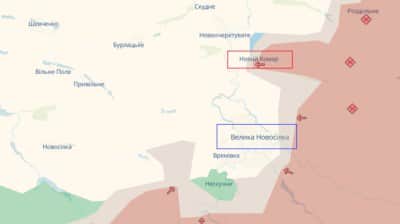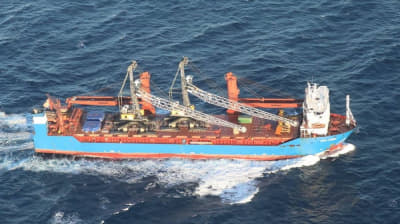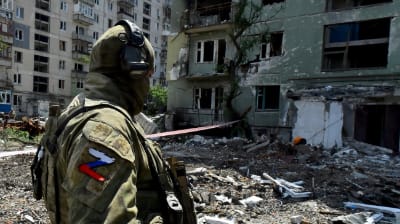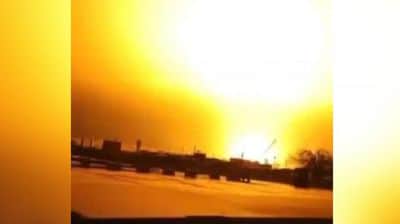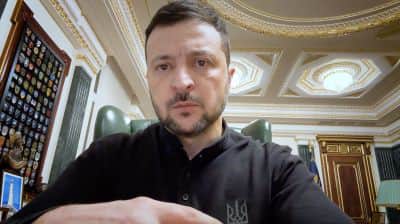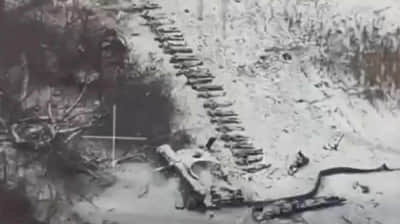Putin and Kim Jong Un challenging West and world order – ISW
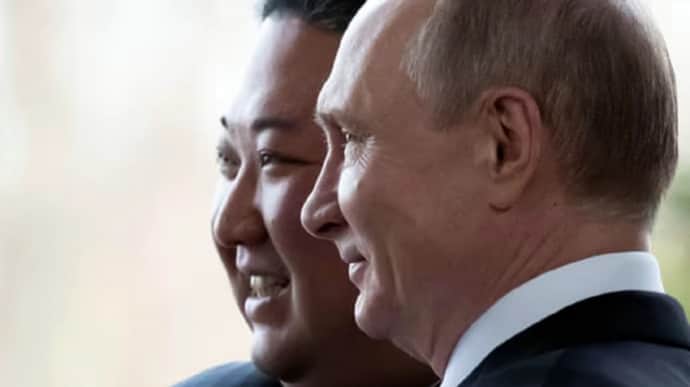
Analysts at the Institute for the Study of War (ISW) believe that Kremlin leader Vladimir Putin and North Korean dictator Kim Jong Un are challenging the West and the current world order by signing an agreement.
Source: ISW
Details: Putin and Kim signed a comprehensive strategic partnership agreement in Pyongyang on 19 June, likely in part to leverage military and technical cooperation with North Korea as a deterrent against further Western support for Ukraine.
Putin explained that the strategic partnership agreement also provides for "mutual assistance in the event of aggression" against Russia or North Korea, after which he immediately criticised discussions in the West about authorising Ukraine to strike Russian territory with long-range weapons and F-16s provided by the West.
Putin then concluded that "in this regard", Russia "does not rule out the development of military-technical cooperation" with North Korea.
Putin likely intended to convey that if the United States were to lift restrictions on Ukraine's use of US-supplied ATACMS missiles to strike Russian territory or on the deployment of the F-16s for similar purposes, Russia could deepen its cooperation with North Korea in military technology, including missiles, weapons, and satellites, utilising the legal framework established by their new agreement.
Putin and other Kremlin officials are likely to persist in using this threat amid ongoing debates about allowing Ukraine to use Western-supplied weapons to strike military targets on Russian territory. They may also extend this threat to other issues that the Kremlin refers to as "escalation" or "provocation" against Russia.
The Russian and North Korean governments have largely presented the agreement as evidence of their mutual support in a common struggle against the West and signalled that Russia and North Korea share a common goal of challenging the West and the current world order.
Putin stated that Russia and North Korea seek to create a "more just and democratic multipolar world order" and that both countries pursue "independent foreign policies" that distinguish them from Western powers.
Putin also noted that Kim has an "objective and balanced view" of the war in Ukraine. Kim and Putin further emphasised the "traditionally friendly and good" relations between Russia and North Korea, "based on the glorious traditions of common history", continuing to refer to the history of the Soviet Union's support for North Korea.
North Korean state media also released messages that similarly emphasised the common cause of Russia and North Korea and stressed that North Korea stands in solidarity with "the sacred cause of the Russian army and people who are proudly advancing towards justice and truth".
Putin's visit and the Russo-North Korean strategic cooperation agreement help legitimise the Kim regime domestically and abroad, as ISW has previously noted. Putin also discussed increasing trade between Russia and North Korea, arguing that improved trade and infrastructure would also benefit their common partner, the People's Republic of China.
Analysts conclude that Putin is seeking to build a coalition of friendly states with historically warm ties to the Soviet Union to challenge the West and the current world order.
To quote the ISW’s Key Takeaways on 19 June:
- Russian President Vladimir Putin and North Korean dictator Kim Jong Un signed a comprehensive strategic partnership agreement in Pyongyang on 19 June, likely aimed in part to use military-technical cooperation with North Korea as a threat against the West to discourage further support for Ukraine. Russia and North Korea largely framed the agreement as evidence of their mutual support as part of a common struggle against the West and signalled that they share a goal to challenge the West and current world order.
- Putin is pursuing a coalition of friendly states with historically warm ties to the Soviet Union to act as an alternative to the West and current world order.
- Russian government officials announced their intention on 19 June to suspend Russia's participation in the Organisation for Security and Co-operation in Europe's Parliamentary Assembly (OSCE PA).
- The Russian military command continues to endorse a culture of permissiveness towards war crimes perpetrated by subordinates on the battlefield in Ukraine.
- The Russian government is attempting to deflect responsibility for well-documented Russian violations of international law regarding Russia's treatment of Ukrainian children by accusing the Ukrainian Armed Forces and other security structures of committing "crimes" against children.
- Air traffic control (ATC) communications from international airspace over the northeastern Atlantic Ocean appear to show the first confirmed instance of GPS jamming on commercial trans-Atlantic routes.
- Ukrainian forces recaptured positions near Starytsia and Russian forces recently advanced near Chasiv Yar and Donetsk City and in east (left) bank Kherson Oblast.
- Finnish outlet Yle, citing satellite imagery and Finnish intelligence sources, reported on 19 June that the Russian military has deployed roughly 80 percent of its equipment and personnel based near the Russian-Finnish border to support its invasion of Ukraine.
Support UP or become our patron!
